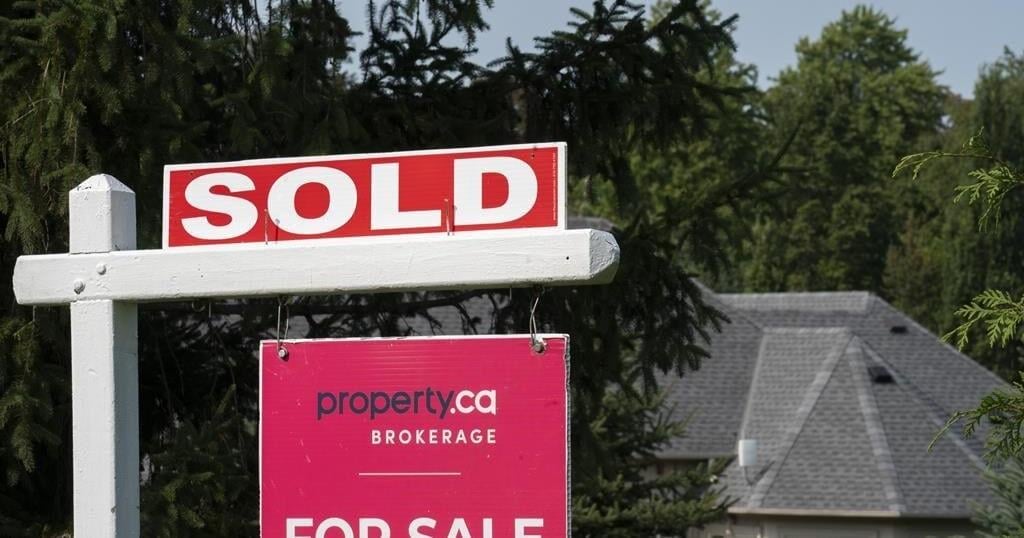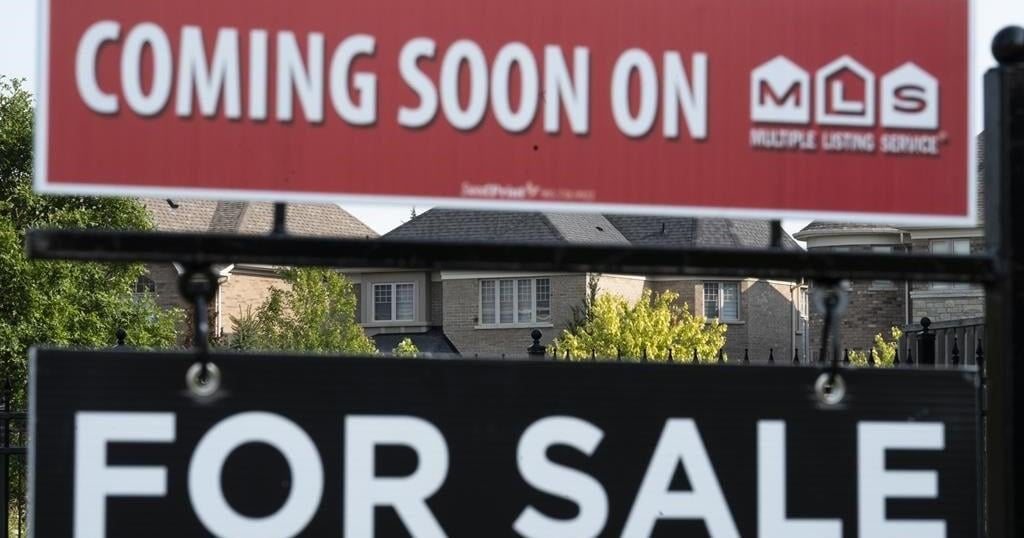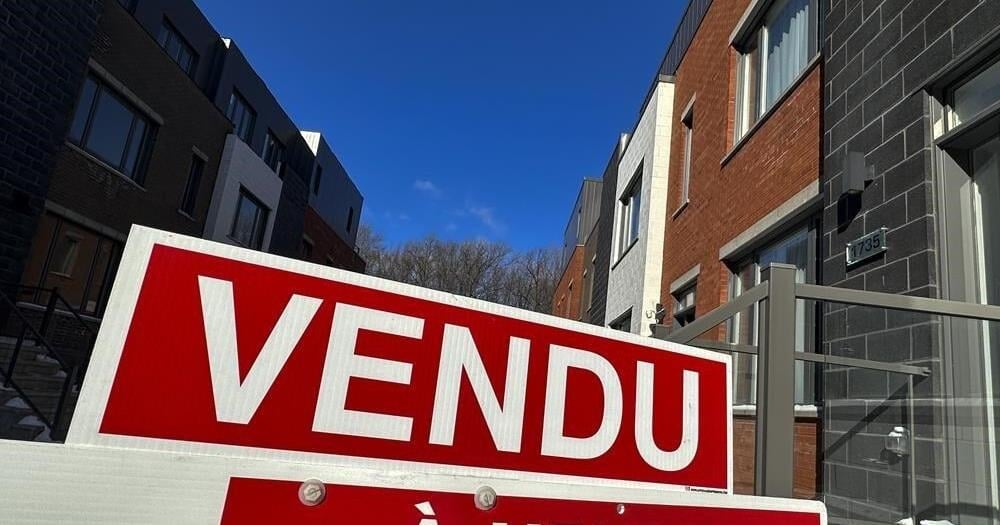Montreal has rolled out a new strategy that aims to speed up approval for real estate projects and help private developers deal with an administration often decried as too slow and overly complex.
Real eState
Approval for Montreal real estate projects to be sped up under new city plan

Under a pilot project announced Wednesday, four boroughs have each appointed an individual to serve as the point person for real estate development, executive committee member Luc Rabouin said. Ville-Marie, Sud-Ouest, Rosemont—La Petite-Patrie and LaSalle, as well as the Namur-Hippodrome area, will serve as “laboratories” to test the plan, which includes 23 concrete actions designed to give developers more predictability. About 80 projects will be affected.
Montreal’s about-face comes as the city grapples with a shortage of affordable and social housing while planning for the creation of new neighbourhoods such as Namur-Hippodrome, near the old Blue Bonnets racetrack, and Bridge-Bonaventure, at the southwestern edge of downtown. City hall’s handling of the Bridge-Bonaventure redevelopment has come in for repeated criticism, with developers saying last year that the Projet Montréal administration dragged its feet and misjudged the area’s potential.
“Apparently, it can sometimes be complicated to develop real estate projects in Montreal,” Rabouin said earlier during his address, eliciting laughter from the audience. “Some people even speak of a veritable ordeal. What I want to tell you is that we recognize that the situation is problematic.”
Montreal’s plan is the result of discussions between the city, elected officials and real estate promoters as part of an advisory council known as the “facilitator cell” that was created in 2021. It pledges to create a “flexible regulatory framework,” improve communication between stakeholders, optimize consultation processes and offer developers greater clarity on approval procedures and delays, among other actions.
Real estate projects of at least $10 million will automatically be considered “structuring,” meaning they will become a priority for the administration, Rabouin said. All social and affordable housing projects will also be treated as priorities, he said.
“The challenge is that we are in the process of changing the city’s culture in its relationship with real estate promoters,” Rabouin said. “We want developers to stay in Montreal. We want to make it easier for them to develop good projects that meet the needs of citizens and our vision of the city.”
Reactions from property officials who spoke at the Urban Development Institute event were generally favourable. UDI head Jean-Marc Fournier lauded the plan as a “sign of rapprochement” between the city and the real estate industry.
“At the end of 2023, we are going to have to sit down to look at what was achieved. I’m very confident, but I will be vigilant.”

Real eState
Mortgage rule changes will help spark demand, but supply is ‘core’ issue: economist

TORONTO – One expert predicts Ottawa‘s changes to mortgage rules will help spur demand among potential homebuyers but says policies aimed at driving new supply are needed to address the “core issues” facing the market.
The federal government’s changes, set to come into force mid-December, include a higher price cap for insured mortgages to allow more people to qualify for a mortgage with less than a 20 per cent down payment.
The government will also expand its 30-year mortgage amortization to include first-time homebuyers buying any type of home, as well as anybody buying a newly built home.
CIBC Capital Markets deputy chief economist Benjamin Tal calls it a “significant” move likely to accelerate the recovery of the housing market, a process already underway as interest rates have begun to fall.
However, he says in a note that policymakers should aim to “prevent that from becoming too much of a good thing” through policies geared toward the supply side.
Tal says the main issue is the lack of supply available to respond to Canada’s rapidly increasing population, particularly in major cities.
This report by The Canadian Press was first published Sept. 17,2024.
The Canadian Press. All rights reserved.
Real eState
National housing market in ‘holding pattern’ as buyers patient for lower rates: CREA

OTTAWA – The Canadian Real Estate Association says the number of homes sold in August fell compared with a year ago as the market remained largely stuck in a holding pattern despite borrowing costs beginning to come down.
The association says the number of homes sold in August fell 2.1 per cent compared with the same month last year.
On a seasonally adjusted month-over-month basis, national home sales edged up 1.3 per cent from July.
CREA senior economist Shaun Cathcart says that with forecasts of lower interest rates throughout the rest of this year and into 2025, “it makes sense that prospective buyers might continue to hold off for improved affordability, especially since prices are still well behaved in most of the country.”
The national average sale price for August amounted to $649,100, a 0.1 per cent increase compared with a year earlier.
The number of newly listed properties was up 1.1 per cent month-over-month.
This report by The Canadian Press was first published Sept. 16, 2024.
The Canadian Press. All rights reserved.
Real eState
Two Quebec real estate brokers suspended for using fake bids to drive up prices

MONTREAL – Two Quebec real estate brokers are facing fines and years-long suspensions for submitting bogus offers on homes to drive up prices during the COVID-19 pandemic.
Christine Girouard has been suspended for 14 years and her business partner, Jonathan Dauphinais-Fortin, has been suspended for nine years after Quebec’s authority of real estate brokerage found they used fake bids to get buyers to raise their offers.
Girouard is a well-known broker who previously starred on a Quebec reality show that follows top real estate agents in the province.
She is facing a fine of $50,000, while Dauphinais-Fortin has been fined $10,000.
The two brokers were suspended in May 2023 after La Presse published an article about their practices.
One buyer ended up paying $40,000 more than his initial offer in 2022 after Girouard and Dauphinais-Fortin concocted a second bid on the house he wanted to buy.
This report by The Canadian Press was first published Sept. 11, 2024.
The Canadian Press. All rights reserved.
-

 Politics8 hours ago
Politics8 hours agoNew Brunswick Premier Blaine Higgs expected to call provincial election today
-
Media8 hours ago
Sutherland House Experts Book Publishing Launches To Empower Quiet Experts
-

 News20 hours ago
News20 hours agoAlberta Premier Smith aims to help fund private school construction
-

 Investment7 hours ago
Investment7 hours agoCanada’s Probate Laws: What You Need to Know about Estate Planning in 2024
-

 Politics7 hours ago
Politics7 hours agoNew Brunswick Premier Blaine Higgs kicks off provincial election campaign
-

 Sports3 hours ago
Sports3 hours agoFormer Canada captain Atiba Hutchinson tells his story in ‘The Beautiful Dream”
-

 News8 hours ago
News8 hours agoQuebec won’t fund graphite mine project tied to Pentagon; locals claim ‘victory’
-

 News20 hours ago
News20 hours agoHealth Minister Mark Holland appeals to Senate not to amend pharmacare bill

















